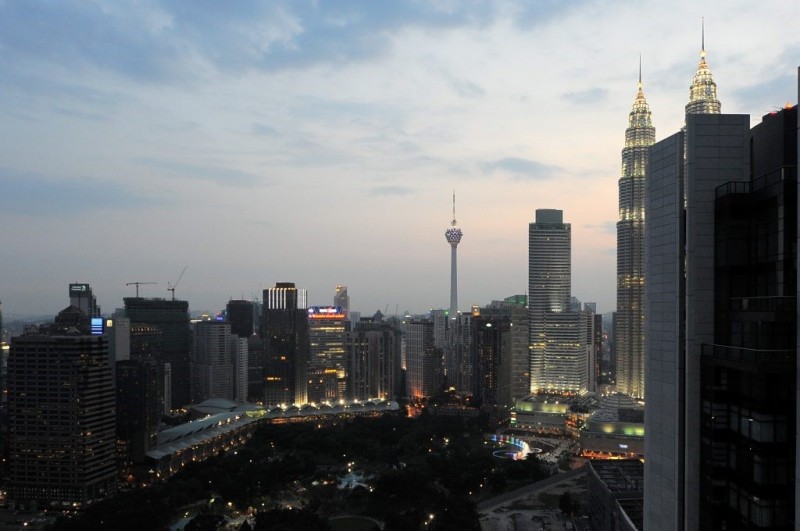
Image credit: The Malaysian Reserve
PETALING JAYA: The combined deployment of renewable energy (RE) and gas power is needed to achieve net-zero emissions amid challenges facing the local energy market, according to GE Gas Power.
Asia’s escalating energy demand, which accounts for half of the global demand, is still much reliant on coal and could pose a challenge for the region to transition to net-zero emissions, the company said.
The global target set to achieve net-zero emissions is by 2050. Sources for RE include solar, hydro, geothermal and wind energy.
GE Gas Power is one of the world’s leaders in gas power technology, services, and solutions.
GE Gas Power’s vice-president for global sourcing and logistics, Raj Thakkar, said solutions structured around the trilemma – finding a balance between affordability, reliability and sustainability in energy – was key to addressing the region’s, including Malaysia’s, energy transition and diversifying its energy mix.
“Gas has proven to be a formidable force for Asia’s and Malaysia’s evolving energy landscape, which is why we believe the accelerated and strategic deployment of renewables and gas power can change the trajectory for climate change with a significant reduction in emissions in the near term.
“The flexible and often reliable nature of gas will support the region’s as well as the country’s growing energy economy, while also generating real and urgent momentum to accelerate the region’s decarbonisation goals,” he told StarBiz in response to queries via email.
Thakkar said about 65% of the electricity generated in Peninsular Malaysia today stems from coal. Given that about 80% of total greenhouse emissions are contributed by the energy sector, there needs to be a strong commitment from the power industry’s stakeholders for reduced or near-zero carbon emissions from their operations, he added.
Furthermore, he said there was a need to balance affordable cost structures, to meet Malaysia’s net-zero aspirations for 2050 and its goal to replace all retired power plants with gas plants in the next 10 years.
Although the country has made significant strides in its energy transition, he said more can be done to decarbonise its current and future power plants to avoid carbon lock-in, which prevents the transition to cleaner sources of energy.
This could be done through innovative technology upgrades across existing infrastructure, as well as the adoption of pre- and post-combustion solutions such as carbon capture, utilisation and storage or CCUS.
In Malaysia, the company has worked with power plant operators such as Southern Power Generation Sdn Bhd (SPG) and Edra Power Holdings Sdn Bhd, to provide H-Class turnkey combined cycle plant equipment for their respective sites.
These include SPG’s Sultan Ibrahim Power Plant in Pasir Gudang, Johor, and Edra’s power plant in Alor Gajah, Melaka.
The Melaka plant, which is the country’s largest combined cycle plant, is set to add more than 2.2 gigawatts (GW) of electricity to the national grid, which is equal to the 10% of the country’s current power demand.
On the energy outlook for 2022 in Asia including Malaysia, Thakkar said the local electricity demand is expected to grow from 18.8 GW in 2020 to over 24 GW by 2039, driven by urbanisation and industrialisation.
The four largest markets by electricity consumption – Indonesia (26%), Vietnam (22%), Thailand (19%) and Malaysia (15%), make up more than 80% of the total demand in the region.
In light of this new demand, he said there have been renewed commitments from energy industry players for reduced or near-zero carbon emissions for their operations.
Yet, he said ongoing market disruptions have spotlighted the energy security vulnerabilities of Asian countries, on top of the growing need for these markets to bolster current energy infrastructures, whilst balancing green targets and affordable pricing structures.
At the same time, he said the introduction of renewables at a large scale in Asia continued to face several challenges such as intermittency and reliability issues.
“The transmission of RE also demands large utilisation of open land, presenting another issue alongside energy policy inconsistencies that make long-term pricing challenging.
“While there is no one-size-fits-all solution, we believe that more can be done with gas power to provide with a reliable baseload power needed to ensure grid stability alongside the deployment of RE technologies, whilst building resiliency to external price fluctuations.
“This includes optimising existing gas infrastructure – such as exploring cleaner fuel blends – to kickstart a lower-carbon future as it is likely that these solutions are already being tailored to support the government’s green agenda, local conditions, and individual appetites to accelerate the energy transition.
Source: https://www.thestar.com.my/business/business-news/2022/08/01/achieving-net-zero-amid-challenges

